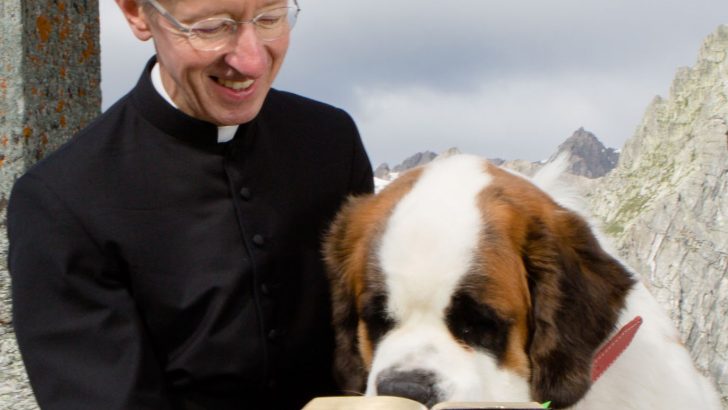Heroism and Genius: How Catholic Priests Helped to Build – And Can Help Rebuild – Western Civilization
William J. Slattery (Ignatius Press, $24.95 / £18.82).
In this ambitious book the author records the significant contribution made by priests to the arts, literature, philosophy and the sciences. He ranges across the centuries. Among those he lists are Ss Ambrose, Augustine, Leo the Great and Gregory the Great. He credits them with rescuing civilisation during the Dark Ages which followed the Fall of the Roman Empire.
Apart from listing priests who had magisterial roles in the development of various disciplines, he sets out the Christian parish as the very core and guardian of civilisation.
Sacraments
The parish provided not only the sacraments, but also the other needs of soul and body. From the time of Charlemagne and Alcuin in the 9th Century the feature of a school attached to a church became common in the Carolingian Empire. Every boy and girl could attend school free of charge and acquire a basic education.
Likewise, if poverty struck at one’s door, the parish was a refuge since it was a place where pastors, who were men of the people, showed sensitive compassion to the plight of the indigent and the vulnerable. With such leadership parishes fostered an ethos of solidarity, sense of community and the civic virtues.
Complementing the communal life in the parishes was the transformative influence of the religious orders, not least that of the Benedictines. Then there were the missionary monks. Outstanding among those were Saint Columbanus and his colleagues. They evangelised in France, Switzerland, Austria and Italy.
Every monastery they established became an important centre of learning. The last monastery to be founded by St Columbanus at Bobbio in Northern Italy, was to be an important champion of orthodoxy for two centuries and was reputed to have had one of the greatest libraries in the Middle Ages.
Slattery does not eschew the discussion of controversial topics. Modern Western-style democracies are based on free market economics. This is defined as the buying and selling of goods though free enterprise by peaceful social co-operation, without any form of coercion from governmental intervention.
It has been claimed that the theoretical principles of this market economy developed out of Calvinism and the Protestant mind-set and were popularised by Adam Smith (1723-90) in his The Wealth of Nations. However, Slattery shows that the theoretical principles of the market economy were fully developed by the Spanish schoolmen of the 16th Century and drove the markets of Europe from that time onwards.
The author discusses the long and tortuous road women have had to travel to achieve their true standing in society and the role of the Church in that odyssey. In the pagan world, and that of the Roman Empire, women were treated as chattels. As the influence of the Church on the world increased that attitude changed. In Christian marriage men and women were set out as equals.
In the Middle Ages women exercised authority over the great female religious orders just as men in the corresponding male orders. Women, especially queen mothers, emerged as power-brokers in the evolution of medieval dynasties. But it has not been until the 20th Century that there has been clear gains for women’s rights and people being more equal. Yet, the struggle for women’s rights has much more road to travel, especially in regions beyond the Western world.
This book is a wonderful read. It is scholarly and meticulously sourced and has an excellent index.


 Fr. William J. Slattery with a friend in the Alps.
Fr. William J. Slattery with a friend in the Alps. 